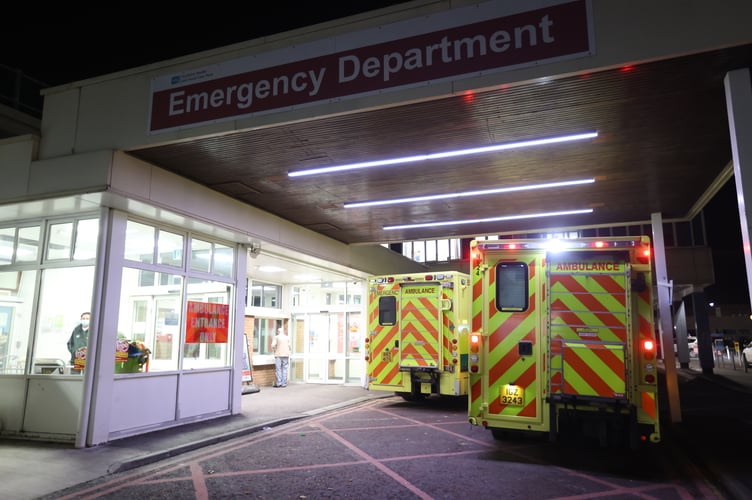The cost to repair buildings at Royal United Hospitals Bath is more than the annual running cost of the trust, new figures reveal.
Recent figures from the NHS Estates Return Information Collection show it cost £61 million to run Royal United Hospitals Bath NHS Foundation Trust's estates in the year to March.
Meanwhile, the bill to clear the backlog of repairs needed at the trust is now £67.9 million.
The site requiring the most expensive work is Royal United Hospital, with the provisional statistics estimating it needs £66.5 million in maintenance and repairs.
The backlog bill is a measure of how much cash is needed to restore buildings to a good state and refers to maintenance work that should already have taken place rather than any that is planned.
The cost to eradicate the backlog of NHS repairs in England now stands at £13.8 billion, up 19% from £11.6 billion the previous year.
The NHS estimates the total cost of running its estate was £13.6 billion in 2023-24.
Saffron Cordery, deputy chief executive of NHS Providers, said: "Vital bits of the NHS are literally falling apart after years of underinvestment nationally. The safety of patients and staff is at risk."
She added: "The list of essential repairs across the NHS waiting to be done keeps getting longer and the costs are rocketing.
"This can’t go on. Eye-watering sums are needed just to patch up buildings and equipment which are in a very bad way right across hospitals, mental health, community health and ambulance services."
She said the Government must provide an urgent capital funding boost and rethink rules on capital investment in the NHS so that trusts can tackle the maintenance backlog.
The data also shows the cost of tackling "high risk" repairs, where maintenance must be addressed with "urgent priority" to prevent catastrophic failure and major disruption, has risen 16% to £2.7 billion.
Royal United Hospitals Bath needs about £6.6 million to address "high risk" repairs.
Sarah Woolnough, chief executive of the King’s Fund, said: "While this data is provisional, it is already indicating a substantial leap in the cost and severity of maintenance issues with NHS buildings and equipment.
"This will ring alarm bells for the new Government as it prepares for its first autumn Budget."
She added: "Such a sizeable backlog will be a significant obstacle to the NHS increasing productivity and delivering more value for taxpayers and better quality care for patients.
"But most worryingly it also poses an increasing safety risk to staff and patients."
She said "all eyes" are on the upcoming Budget, to see if the Government will taking a longer-term approach to investing in health and care services.
A government spokesperson said: "This Government inherited a broken NHS – and to fix it, we recognise the importance of strategic, value-for-money capital investments.
"The upcoming Budget will begin delivering on the promise of change, including for the NHS.
"As well as the vital reform we will deliver as part of our 10-Year Health Plan, we will ensure the NHS has the funding it needs as we build a health service fit for the future."


